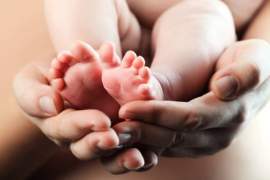
All You Need to Know About The Effects of Abuse

Distrust
When a child is subjected to abuse and neglect, he/she develops a distrust of others.
Insecure Feelings
One of the common effects of child abuse is that a child will develop insecure feelings. They may experience extremely low self-esteem and may develop the sense that they are worthless. An adult who subjects a child to abuse may continuously make demeaning comments toward the child and make the child feel that they are unloved or not wanted.
A child who is suffering from child abuse may live in a constant state of fear and anxiety. They may be afraid of returning to their house and they may not ever feel secure in their own home. A child may feel that they are to blame for the abuse that has been inflicted upon them, and they may therefore develop a sense of guilt and self-hatred.
A child who has been subjected to abuse may become insecure with the person that they are because the person that they are has, for some reason, been beaten, yelled at, or in some other way physically or emotionally harmed. The child may believe that they have done something wrong or that there is something wrong with them. A child who is suffering from abuse may feel that they have no control over their life and that their life rests in the hands of the abuser.
Emotional Issues
When a child experiences abuse and neglect, it is extremely traumatic and may have a large negative impact on the child's psychological and emotional development. Children who suffer from abuse often develop extremely low self-esteem and a sense of self-disgust. Many children who have been abused will become extremely depressed and limit their own potential.
Studies have shown that the instance of physiological disorders increases if a child has been subjected to abuse. A child who has been abused may also have skewed images of his/her body and develop eating disorders, such as bulimia and anorexia. The child will maintain the negative image of himself/herself that was illustrated to them by the demeaning comments of their abuser. A child who was abused or neglected may resort to promiscuous activities in order to obtain the affection and comfort that they were not given as a child.
If a child is suffering from these negative effects of child abuse, then it is very important that the child be provided access to help. They will need assistance to overcome the damage that their abuser has inflicted upon them and be able to obtain a healthy self-image. Therapy and support groups may help an abused child to reestablish a normal life.
Physical Damage
Physical damage is the most noticeable indicator of child abuse. Physical damage may manifest in a variety of different forms. A child who is suffering from physical abuse may frequently obtain unexplained bruises. The child may also show evidence of lashes or burns. Children who are suffering from physical abuse may also receive fractures and broken bones.
It is very common for children to receive injuries playing or taking part in normal, every day activities. The physical damage that may occur due to abuse will appear in locations that a child would not normally injure themselves. Usually, these injuries will not be accompanied by an acceptable excuse for the child's physical harm. A child may try to protect the abuser by making up excuses or claiming that they are clumsy and get hurt a lot.
Children who have been subjected to sexual abuse may display other types of physical indicators. These injuries will reflect the atrocities that have been inflicted on them when they were exposed to sexual abuse. If an individual becomes aware of any of these physical indicators, it is extremely important that they report it immediately.
Relationship Problems
One of the most common effects of child abuse is that a child who has suffered from abuse will have problems establishing and maintaining relationships and emotional bonds. The majority of the time, abuse is inflicted by an individual who is close to the child. It is usually the parents or the guardians of a child who are responsible for the abuse. As a result, the child will feel that they have been betrayed by a person that they loved and trusted. This betrayal, and the emotional and psychological effects of abuse, will stay with the child for a long period of time.
The child may withdraw from friends and family and abandon relationships that they once held dear. They may have problems interacting with their peers and may shy away from any type of social situation. An individual who has been abused may also find it difficult to form romantic relationships in the future. This is because the individual will fear becoming intimate with another person.
This form of relationship requires a great deal of trust and communication, which are two qualities that are inhibited when a child is abused. A child who has been abused may struggle for the rest of their lives to form significant relationships.


















